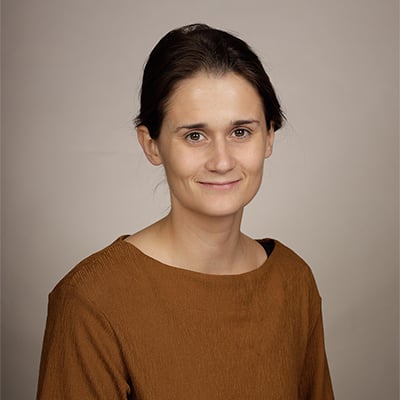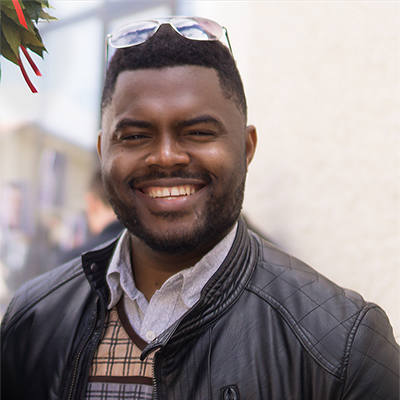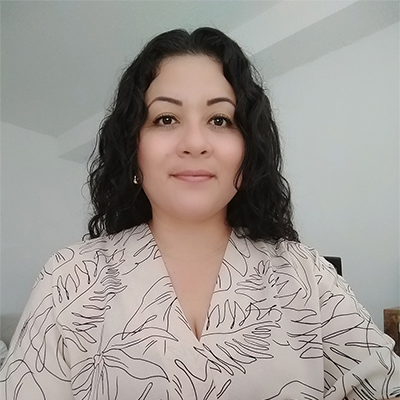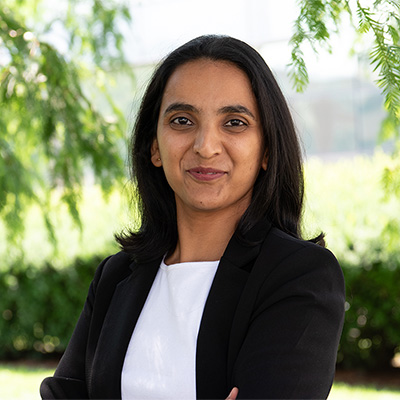The Helping to End Addiction Long-term® Initiative, or NIH HEAL Initiative®, relies on creative, hardworking individuals to find scientific solutions for the opioid crisis. However, the problems we face are complex, and there is a limited research workforce pipeline to accomplish these goals. Strengthening system capacity is a key aspect of the HEAL mission, by investing in training the next generation of researchers to do this important work.
One exciting new effort is the HEAL Postdoctoral-to-Independent Career Transition Award in Pain and Substance Use Disorder Research program, which aims to increase the independent investigator workforce in research areas supported by the initiative. Mirroring an NIH-wide program of the same name, this research support facilitates a timely transition of mentored, postdoctoral scientists to independent faculty members. Here’s a quick peek into the research plans and interests of the first recipients of this funding.

Chelsie L. Brewer, Ph.D. (Postdoctoral Fellow, Department of Psychiatry and Behavioral Sciences, Stanford University, California)
Knee osteoarthritis is one of the most prevalent sources of chronic pain, disability, and decreased quality of life. Even with the availability of disease-modifying treatments such as knee joint replacement, there is a major unmet need for safe, effective, and precise therapeutics for knee osteoarthritis.
What she’s studying: Brewer’s research aims to unravel the causes of detrimental nerve activity that lead to chronic knee pain. This information can be used to find ways to block harmful nerve signaling while preserving the body’s ability to sense tissue damage, balance, and stabilize the knee.
How she got here: As a basic scientist, Brewer has always been interested in the organization and function of pain circuits in health and disease. Since joint osteoarthritis affects so many people as they age, the problem is highly relevant, even for those who are healthy and active. The research is also personal: Brewer’s family runs a third-generation construction business, and she has seen the effects of knee osteoarthritis pain firsthand in working-class patient populations.
Why HEAL? The HEAL mission aims to identify pain management solutions beyond opioids, which are often used to treat chronic pain. This research support allows her to build a world-class team of experts to help her answer her research questions – both now in the last phase of her mentored training and serving as a springboard for years of future research.
Outside the lab: Brewer enjoys the outdoors, live music, and quality time with a close-knit web of friends and family.

Yannick Fotio, Pharm.D., Ph.D. (Postdoctoral Fellow, University of California, Irvine, School of Medicine)
Pain and reward are pivotal components of a complex cycle. Throughout evolutionary history, humans and various animal species have developed behaviors that steer them away from painful experiences and toward rewarding ones. Despite the significance of these experiences, the precise mechanisms driving the experience of pain and reward remain elusive.
What he’s studying: Fotio’s research centers on how inflammation or injury leads to a transition from acute to chronic pain. He is exploring the role of cellular energy metabolism and lipid signaling in both chronic pain and substance use disorders.
How he got here: A few years ago, Fotio’s research showed that increased activity of a substance nicknamed NAAA leads to long-term pain after tissue injury by reprogramming energy metabolism in the spinal cord. He is interested in working with researchers in various fields to follow up on these findings to identify safe and effective therapeutic strategies that prevent chronic pain.
Why HEAL? Fotio sees the value of HEAL funding in catalyzing his career growth through collaborative opportunities, research resources, training, and mentorship. This award provides a comprehensive framework to identify effective approaches for managing pain with minimal side effects.
Outside the lab: Fotio is committed to community service as volunteer with a nonprofit organization that fosters academic resilience among under-resourced minorities and prevents substance use disorders through counseling and education. He also plays soccer, enjoys travel, and loves music.

Kimberly Gomez, Ph.D. (Postdoctoral Fellow, New York University College of Dentistry)
A class of molecules called voltage-gated ion channels control the flow of electrical signals in and out of cells, including nerve cells that sense pain. As such, these molecules are targets for new, non-opioid pain medications, but questions linger about whether this strategy can provide pain relief safely and long-term.
What she’s studying: Gomez’s research focuses on a family of proteins, lymphocyte antigen 6 (Ly6), thought to be involved in cancer and immune function. She is studying how these proteins control function of NaV1.7 ion channels during pain sensation in the dorsal root ganglion and spinal cord.
How she got here: Although Gomez has always been fascinated by the intricacies of the human nervous system and its role in shaping perceptions, emotions, and responses, a turning point in her career came from a personal experience. She witnessed her dad struggle with neuropathic pain after a severe spinal cord injury after a car accident. Watching him struggle with this condition was a stark reminder of the pressing need for better treatments for pain.
Why HEAL? Gomez is looking forward to the HEAL community as a holistic platform to leverage research resources, interdisciplinary collaborations, mentorship, training, recognition, and translational science. The funding will catalyze her career development and growth as an independent researcher.
Outside the lab: Nature holds a special place in Gomez’s heart, and she often seeks solace in the beauty of the natural world through hiking and other outdoor escapades. She also loves to try out new recipes, frequently cooking for friends and experimenting with new cuisines.

Aakanksha Jain, Ph.D. (Postdoctoral Fellow, Boston Children’s Hospital, Massachusetts)
Traditionally, pain is thought to reflect the activity of the nervous system only. Jain’s research aims to decipher the role of non-neuronal cell types in the development of recurring pain.
What she’s studying: Jain is interested in decoding the intricate dialogue between the immune system and nervous system in pain and inflammation. In particular, she aims to identify how immune cells interact with sensory neurons to trigger pain in autoimmune arthritis, and if disrupting these interactions can prevent the relapsing flares that affect people with arthritis.
How she got here: As an immunology researcher, Jain studied the mechanisms of inflammation in autoimmune diseases. She became increasingly aware of the predominant and distressing role of recurring pain for patients with autoimmune disorders. Jain hopes to delve deeper into understanding how a dysfunctional immune response might be a root cause of recurring pain in autoimmunity.
Why HEAL? Jain considers her HEAL funding as a path to essential training, mentorship, and collaboration with experts, which will allow her to integrate into the broader pain research community. She is building an independent research program that will help bridge the fields of peripheral neuroimmunology and pain biology.
Outside the lab: Jain likes to spend quality time with her family, including hiking adventures. She is deeply passionate about equity in science and actively participates in various outreach activities to support this cause.
This new research opportunity is one of many strategies HEAL is using to build up the research workforce in pain and addiction—toward ensuring that all Americans have access to safe and effective evidence-based treatments for pain and substance use disorders. If you or someone you know is interested in applying for funding from the HEAL Postdoctoral-to-Independent Career Transition, contact DP Mohapatra, Ph.D., at [email protected].
 U.S. Department of Health & Human Services
U.S. Department of Health & Human Services
